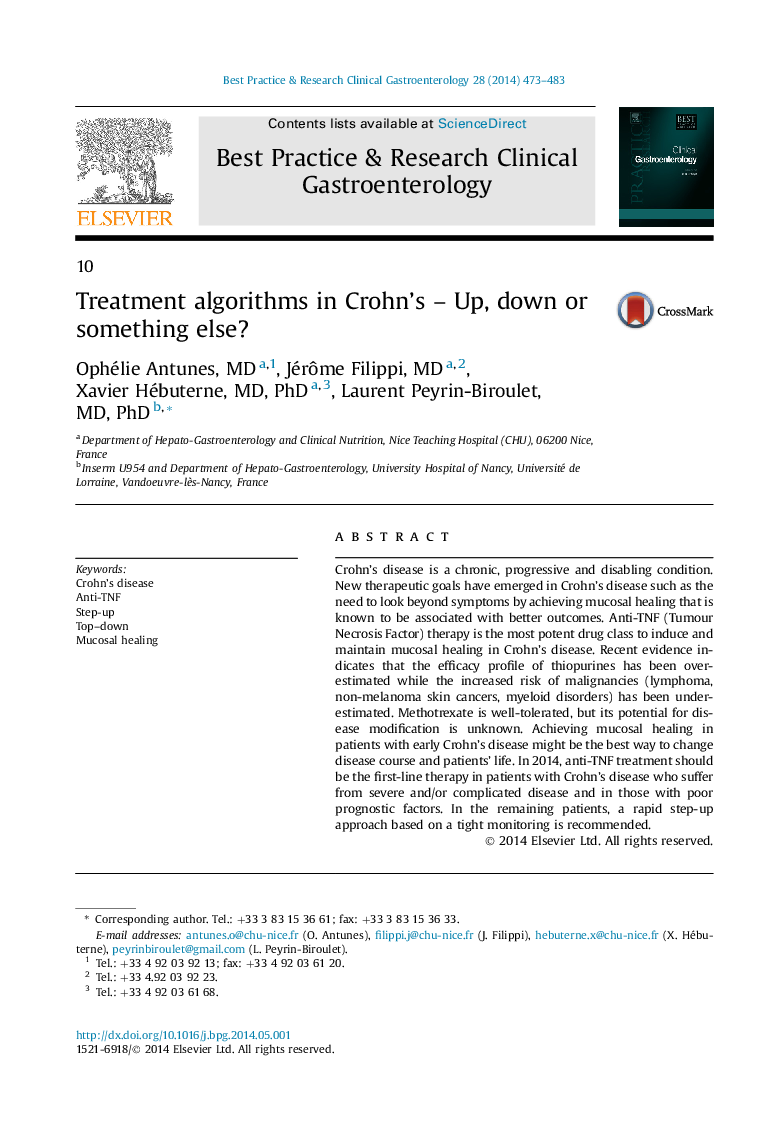| Article ID | Journal | Published Year | Pages | File Type |
|---|---|---|---|---|
| 6086356 | Best Practice & Research Clinical Gastroenterology | 2014 | 11 Pages |
Abstract
Crohn's disease is a chronic, progressive and disabling condition. New therapeutic goals have emerged in Crohn's disease such as the need to look beyond symptoms by achieving mucosal healing that is known to be associated with better outcomes. Anti-TNF (Tumour Necrosis Factor) therapy is the most potent drug class to induce and maintain mucosal healing in Crohn's disease. Recent evidence indicates that the efficacy profile of thiopurines has been overestimated while the increased risk of malignancies (lymphoma, non-melanoma skin cancers, myeloid disorders) has been underestimated. Methotrexate is well-tolerated, but its potential for disease modification is unknown. Achieving mucosal healing in patients with early Crohn's disease might be the best way to change disease course and patients' life. In 2014, anti-TNF treatment should be the first-line therapy in patients with Crohn's disease who suffer from severe and/or complicated disease and in those with poor prognostic factors. In the remaining patients, a rapid step-up approach based on a tight monitoring is recommended.
Related Topics
Health Sciences
Medicine and Dentistry
Endocrinology, Diabetes and Metabolism
Authors
Ophélie MD, Jérôme MD, Xavier MD, PhD, Laurent MD, PhD,
